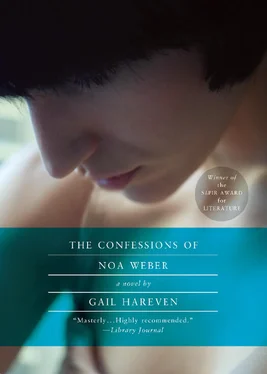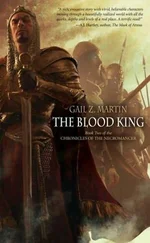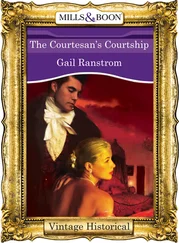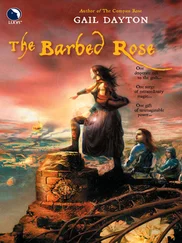In the end of course nothing of the sort happened. My suicidal tendencies are limited, my Adele H. qualities are restricted to the realm of fantasy, and in reality there is little chance of my turning into Victor Hugo’s retarded daughter. But the fantasy of turning into someone like her did not go away as I grew older, and it still happens, too often and for too long, that I think about Alek and feel that ignominious urge to lose myself rising in my heart again.
HAGAR
In the weeks after giving birth to her I hardly thought about her. When they gave her to me to feed I fed her. When they handed me a soiled diaper, I dropped it into the trash. When my mother gave her a bath, I stood next to the bath, and when she put the baby in my arms I held her. I didn’t deny her, I wanted her to exist, and at the same time her presence seemed to me like a temporary matter. As if sometime someone would come to take her, and then I would be able to devote myself entirely to the one who wasn’t there.
Maternal love, they say, is a part of nature. From the moment you lay eyes on your baby the instinctual programming begins to operate, and the feedback with the cub gives rise to infinite devotion and inevitable tenderness in you.
I love Hagar. She makes me happy, she even makes me proud. With time I developed the devotion, the tenderness, the pleasure and so on and so forth, so that even in her absence she occupies my thoughts. If I were put to the test, to the best of my knowledge I would say: My life for hers. But such theoretical tests are not necessarily proof of love.
In reality, I raised her and took care of her to the best of my ability, with all the unavoidable mistakes of a too young and very busy mother, mistakes that do not necessarily stem from coldness.
What I’m trying to say with all this beating around the bush is that I didn’t fall in love with my daughter in the same way as I fell in love with her father, and I never had the same stunned sense that the feeling was inevitable with her as I had in relation to him. I learned to do the things that a mother has to do, and as I did them the feeling developed, and this is the reason why it is precisely maternal love that seems to me a matter of choice. I never chose to love Alek.
When she was a little girl Hagar said to me more than once: “When I grow up I’ll only have children when I love someone and marry him,” and now too, as far as I know, she keeps to this decision. Sometimes I think that it’s my daughter’s good fortune that her father was not with us. Because it was only in the void that he left with his departure that I could learn to love her. I don’t think that I could ever have “grown used” to him, and it’s clear to me that his daily presence would have stopped any other presence from growing inside me.
“Do you know what great love gave birth to Columbus?” he asked me one night in Moscow when I, at least, was quite drunk. “You don’t know because there is no such story. A great man like Columbus, something as tremendous as discovering America by mistake, is not the result of love. Love has no results.”
“And great results don’t come from love,” I wisecracked in the treachery of drunkeness.
“Something like that, but don’t you believe it. It’s only Symbolists’ talk. Not something really connected to life.” At this point I already knew, if I didn’t know from the outset, that the ideas he spouted were to be taken no more seriously than his retraction of them.
The Yom Kippur War was the first time that I paid my daughter any real attention. My father put on his uniform on the first day of the war and drove to the staff headquarters to find himself a job in the chaos. My mother plunged immediately into the hospital, and hardly emerged to go home. Talush was deposited with neighbours and Miriam moved temporarily to Kiryat Yovel to help her sister-in-law who had been left alone with three small children. In September I had started work in Tami’s restaurant, Soupçon, and Hagar had started going to daycare, but with the outbreak of war both the restaurant and the daycare were closed, and with all the horror around, I no longer seemed so important even to myself.
I once read a story in an American magazine, maybe made up, about a flood in a Scandinavian mental asylum. According to this story, when the water began rising the catatonics emerged from their paralysis, came to life and began to evacuate the building with exemplary efficiency, ingenuity, and mutual aid. All the way to their new temporary facilities, with the water still rushing behind them, they kept on making merry, sat wrapped in their blankets and sang, threw candies at each other — or so I imagine the scene — and only early in the morning, when they were taken off the truck and led into the new building, did the lunatics return to their lunacy, the catatonics to their catatonia.
Two thousand six hundred soldiers were killed in the Yom Kippur War, Amikam among them, I already knew, and two of my peers from the youth movement, and four members of the kibbutz. Most of my classmates were at the front, Yoash was in Sinai with the reservists; almost everyone I knew plunged into the war, and the whole horror passed me by.
All that happened to me was that I started to think about Hagar, and that too came from a primeval fear. Suddenly the two of us were alone, and with all the unclear information and rumors flying around, I started fantasizing about how I would flee with her to the forests. The forests? Yes, I regret to say that for some reason I saw myself fleeing the shelling with the baby to the forest.
Among other nonsense I thought that it was a good thing she was still breast-feeding, because when the Syrian stormtroopers ran riot in the streets — for some reason I had Syrians in my head — I would be able to lock the door without having to worry about food for her. I remember that I even checked the lock. At the end of all these adventures was of course an emotional reunion with Alek who came to look for us; but until the emotional reunion, I was at least with her both in fantasy and reality.
Someone will have to explain to me one day why people make propaganda for love: we have our heads stuffed with it from infancy, as if this particular lunacy is an important Zionist value. Get ready, get set, here it comes … like a flash of lightning … your personal earthquake … don’t let it pass you by, you too deserve to experience it … love at first sight for every citizen!
When I was a child it wasn’t so bad: “love” was mentioned almost only at bedtime; “love” appeared in the fairy tales that Yochi sometimes read aloud to us from the passage, when we were all already tucked into bed in our rooms, with our faces to the wall. But Yochi usually preferred stories of a different kind, and it was only rarely that she read us fairy tales.
Later on we discovered Hollywood romances for ourselves, in the movies for adults screened in the dining room and in hidden copies of Movie World . The girls read Daddy Longlegs , the boys restricted themselves to volleyball.… On the door of a cupboard in the dentist’s clinic Rhett Butler held Scarlett O’Hara’s chin as if he were about to examine her throat, and when I opened my mouth wide Shoshana Damari sang on the radio, “He knew there was no lighthouse on the shore.…” On the whole, I think, most of the time we were free of romantic preoccupations. Not like today when the propaganda is more and more pervasive, and every click of the remote control brings you propaganda for epilepsy or some weird jingle in praise of being struck by lightning.
In a thousand years I will never understand why they sell us this stuff: as if emotional epilepsy is something charming and lightning strikes are good for the environment.
Читать дальше












